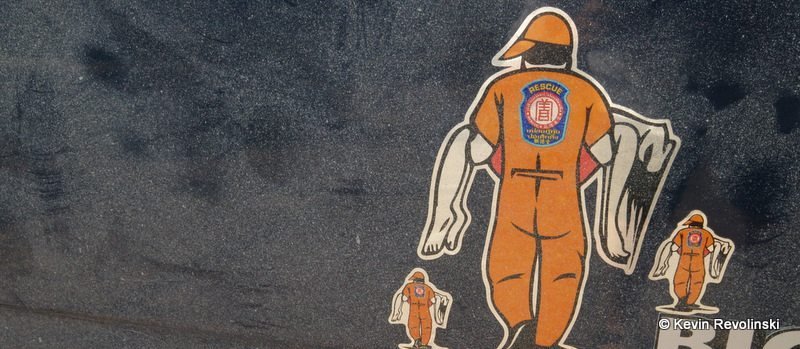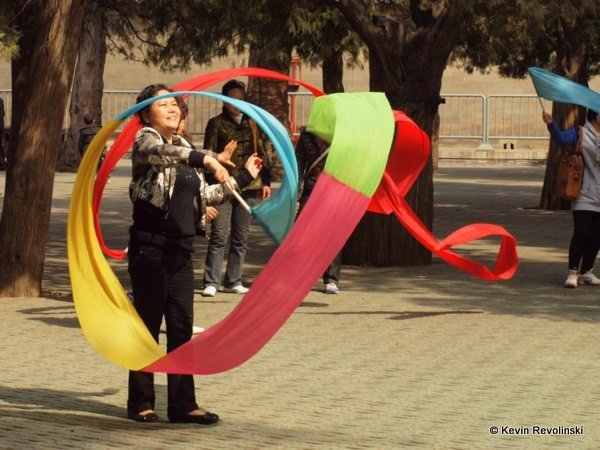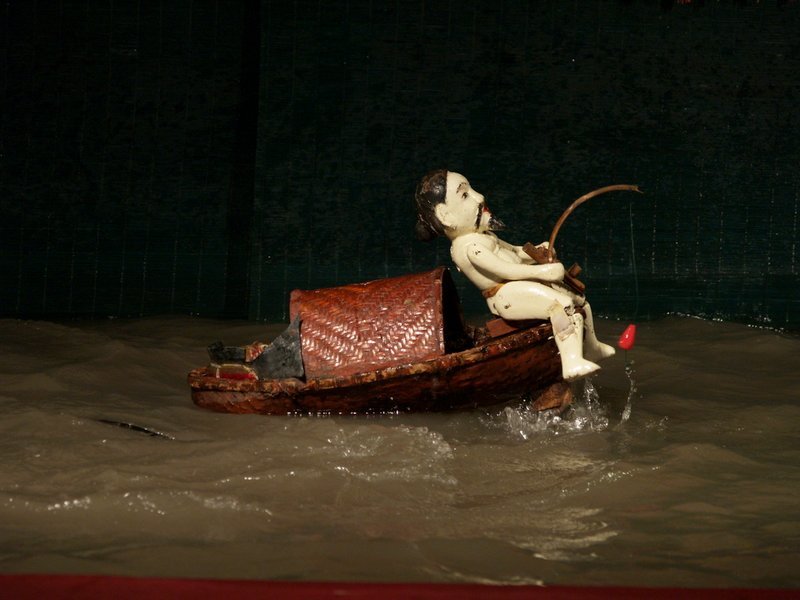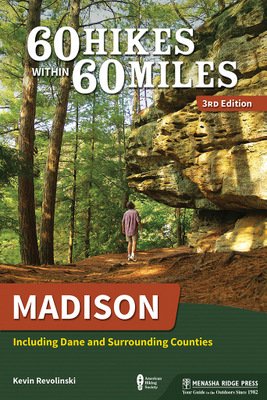Bangkok Rescue: Interview with Marko Cunningham
I met Marko back in 2008 and in 2010 did this story about him for an in-flight magazine. Marko returned to Bangkok for the violent protester-government clashes, risking his neck once again to save someone else’s.

New Zealander Marko Cunningham sleeps with the dead. That’s what his Thai colleagues tell him. Ever since the time he passed out from exhaustion in a temporary morgue during the 2004 tsunami aftermath, the Thai have looked at him with apprehension and wonder, expecting that the spirits of the dozens of bodies in that cold storage shed will follow him for the rest of his days. But now Cunningham collects the living.
The tragedy of the tsunami had left quite an impression on the former English teacher. He had already been doing some volunteer work with Ruamkatanyu, a charitable foundation originally formed to provide coffins and body collection for families of victims who could not afford it. At the time he was mostly distributing clothes and food to poor villages in Thailand. But then his supervisor called him to the disaster zone to help coordinate English-speaking volunteers. “I personally logged 2000 bodies.” He already had a bit of experience collecting the dead with Ruamkatanyu, but the sheer numbers were overwhelming. “The hardest part was dealing with families of victims, finding them and dealing with their emotions.”

When he returned to Bangkok and Ruamkatanyu he had a renewed passion for helping the living. “I was burnt out with dead bodies and so I joined a volunteer ambulance service having only first-aid background and began working almost immediately to get my mind off the tsunami.”
Bangkok’s publicly funded ambulances are right few and handle less than 10% of the emergency calls while private ambulances are typically unaffordable for many victims. A city of far more people than its often-touted figure of just over 9 million, Bangkok relies primarily on volunteers – including men without first-aid training who use their own cars and trucks – to negotiate the gridlock of the metropolis and hopefully deliver the injured to a hospital.

Cunningham’s lifesaving vocation soon became a second full-time job. “I clocked a minimum of 40 hours per week with my own ambulance on top of working a full-time teaching job bringing my hours to well over 80 per week.” He checked in four nights a week often answering calls until well into the morning before shutting off the radio and heading home for a few hours of sleep before teaching again.
His first night on the job he saw a dozen bad traffic accidents, but over the years duties have ranged from taking the sick to the hospital to helping people get snakes out of their houses. He sometimes has a Thai partner but has learned to work alone much of the time having developed enough medical Thai to get by.
When Cunningham hears an emergency on his radio, he has to be careful not to answer a distress call outside his vaguely defined jurisdiction of around 5 km². Because a few hospitals have paid illegal fees of perhaps 300 baht for each patient delivered, other small and completely untrained groups have sprouted up and some ambulance drivers have actually been shot trying to assist the injured. “Because of the economic situation and corruption in the government there are still turf wars from groups who shouldn’t even be there in the first place.” In other cases, the dangers come from legitimate rescuers. “My best friend died two years ago on the job helping others. He was hit by a police car.”

But that doesn’t keep Cunningham out of the trenches. “The times I am teaching I am thinking about my work in the ambulance. My life is literally rescue now; teaching is just a means to be doing what I love most: helping people.” His most amazing rescue came in 2009 during the Songkran Festival in Bangkok when a man had fallen into the Chao Phraya River and had his hand trapped in the intake valve of a jet ski. “I did CPR in the water with my hand around his back. And he survived. We thought he was dead for sure, but they got to him to hospital and got a pulse.”
Not the least of the challenges is financial. Recently Cunningham had to sell his Mistubishi Triton and is now desperately looking for a sponsor for a new truck. He is in the provinces now volunteering in a public ambulance, but plans to be back working in Bangkok later this year, even if he has to buy a second-hand ambulance himself. “I love what I do and I love Thailand because it is unique with this volunteer service which takes care of everything while in other countries the service is provided by the government. It’s a tribute to the good nature of the Thai people.”
_________________________________
Sleeping with the Dead is Cunningham’s memoir about his rescue experiences in Thailand over the last ten years, including aiding the poor in the provinces, collecting bodies after the tsunami of 2004, and driving ambulance in Bangkok. For more information go to www.bkkfreeambulance.com





 ORDER YOUR COPY TODAY!
ORDER YOUR COPY TODAY! ORDER YOUR COPY TODAY!
ORDER YOUR COPY TODAY!
Marko is clearly a very special person and he has a very different experience of living in Thailand that we normally read about. Marko has written an account of a different world in Thailand – and certainly worth a read – “Sleeping with the Dead.”
Sorry Mr. Revolinski, but “Marko” is not only foreigner working EMS in my country. We have other farang who are even more qualify than he is some are EMT train in the US. So, please get facts first before state that he is ONLY one in Thailand – maybe he likes to think it is fact but surely not true….
Sorry, Wongvan. It is an old article. At the time of writing to my knowledge there were no other foreign volunteers working the Bangkok volunteer EMS services. If that has changed, that’s great. Thailand needs the help.
Pingback: Travel Photo of the Week: Ao Nang, Thailand
Hey Wongvan, Kevin is right that its an old article, but also, I have never stated I was the only one EMS volunteer in “Thailand”, my exact words were “Im the only farang officially registered as a volunteer in Ruamkatanyu (for 12 years now). I have NO idea about other groups, except I know in Koh Somet has a father and son working in rescue there (im still not sure they are official volunteers or not). Apart from that, are there any farang who are registered as volunteers in EMS? I’d love to know who they are and I agree with Kevin that it is GREAT if we have more farang volunteers helping. You seem to think I don’t want more? Actually I advertise on my website for more farang volunteers and I have helped 2 farang get into other groups already (including Ruamkatanyu). I think you are getting upset about nothing, but thank you for your support anyway:)
I will start to work in Bangkoks Don Mueang Airport soon.
As i am an active german paramedic and instructor (and also AREMT-Flightmedic) for more than 25 years i would like to volunteer in the EMS of my new hometwon.
Any information is hghly appreciated !
Thorsten
Definitely contact Marko for more information! Enjoy your new hometown!